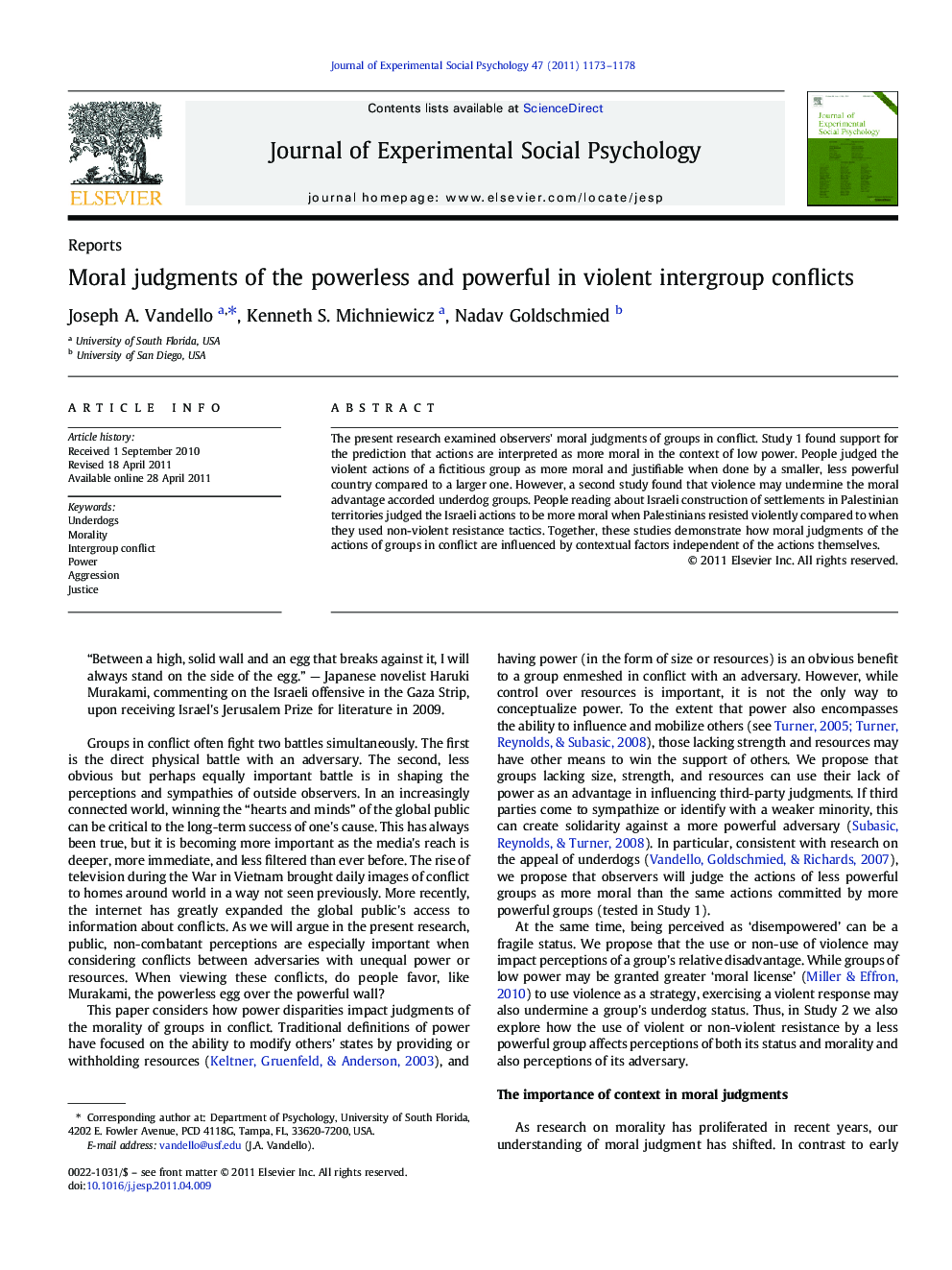| Article ID | Journal | Published Year | Pages | File Type |
|---|---|---|---|---|
| 947983 | Journal of Experimental Social Psychology | 2011 | 6 Pages |
The present research examined observers' moral judgments of groups in conflict. Study 1 found support for the prediction that actions are interpreted as more moral in the context of low power. People judged the violent actions of a fictitious group as more moral and justifiable when done by a smaller, less powerful country compared to a larger one. However, a second study found that violence may undermine the moral advantage accorded underdog groups. People reading about Israeli construction of settlements in Palestinian territories judged the Israeli actions to be more moral when Palestinians resisted violently compared to when they used non-violent resistance tactics. Together, these studies demonstrate how moral judgments of the actions of groups in conflict are influenced by contextual factors independent of the actions themselves.
Research highlights► We report two studies examining how people judge the actions of conflicting groups of unequal power. ► In Study 1, people judged violent actions of a fictional country as more moral when the country was relatively powerless. ► In Study 2, Palestinians were judged less moral when the violently resisted Israeli construction. Israelis were judged more moral when Palestinians resisted.
